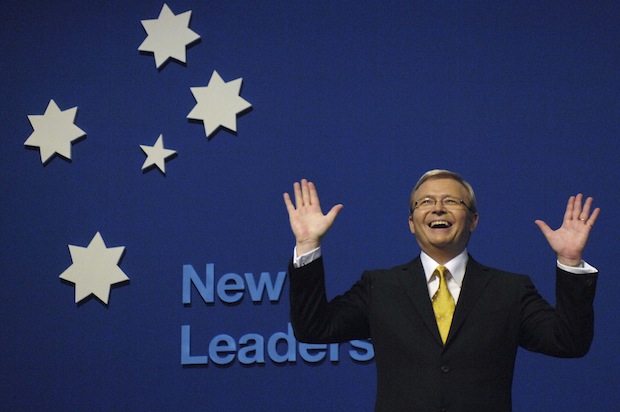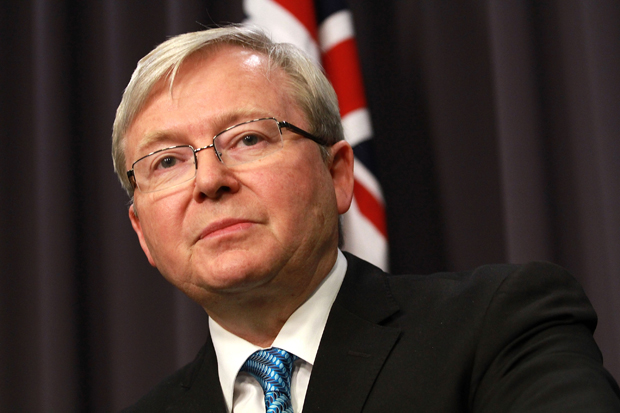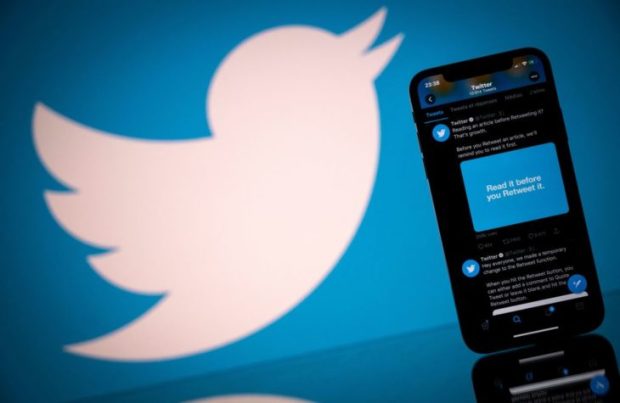Last week, former Howard cabinet minister Nick Minchin spoke out against Tony Abbott’s paid parental leave scheme, describing it as ‘indefensible’. The next day WA’s Liberal Premier Colin Barnett let his displeasure with the plan be known. And only a few weeks earlier, NSW Liberal Premier Barry O’Farrell ignored Abbott’s antipathy to Gonski by signing his Liberal state up to it.
The Liberal party has always prided itself on being a ‘broad church’, relatively happy to encompass varying and often diverse economic and social agendas within the one tent. Inevitably, this generates tension between liberal ideals of individualism and freedom of expression and the conservative belief in strong leadership and party unity.
Arguably, one of Tony Abbott’s greatest strengths has been his ability to maintain a cohesive team over four years of opposition, while allowing differing beliefs to be publicly aired without damaging the Liberal brand — ranging from Malcolm Turnbull’s Q&A-friendly agenda to Barnaby Joyce’s more strident 2GB-ism. A lesser leader would have found such a balancing act hard to achieve without the inevitable party room rumblings.
Meanwhile, across the aisle, Labor resembles less a ‘broad church’ and more a peculiar, monistic cult. Not exactly Jonestown or Waco, but if the polls are anything to go by 7 September may well result in a self-inflicted political massacre of tragic proportions for Labor; where a group of starry-eyed individuals who should have known better take a vow of silence and wilfully follow a sociopathic but charismatic leader to their doom.
But does a cult differ from any normal organisation that devotes itself passionately to a specific cause and a captivating leader? The Church of Scientology, for instance, is classified a cult because it is suspected of brainwashing and defrauding its followers in the name of an implausible set of values; in their case the quest to explore their ‘thetans’.
Cult-founder L. Ron Hubbard defined a thetan as: ‘…having no mass, no wave-length, no energy, no measurable qualities and no time or location… The thetan is most familiar to one and all as you,’ he concluded. Hmmm. Sounds suspiciously like Julia Gillard’s pitch for Labor values: ‘we are us’.
Increasingly Labor values seem to be tokenistic at best, dictated by whichever fake Messiah happens to be in the pulpit. Hence, off-shore processing and detention on Manus Island is an affront to Labor values one day — ‘inhumane’ according to Tony Burke, circa 2007 — yet he himself is praising it as manna from heaven the next. A return to surplus is economic holy writ one day, according to the priestess of finance Penny Wong, and a discarded and pointless pursuit the next. Climate change is the great moral challenge one day, and a matter for discredited European scam-merchants the next.
Pious pronouncements about the national disability scheme, the national broadband network, fast trains, a surplus and the like all seem to rely largely on blind faith.
A definition of cults includes the idea that they have ‘a misplaced or excessive admiration for a particular thing: such as the cult of the pursuit of money as an end in itself’. Arguably, the pursuit of power as an end in itself — Graham Richardson’s ‘whatever it takes’ — satisfies such a definition. Labor are in power to keep Labor in power. Labor values are whatever Labor values.
Dennis Tourish, co-author of On the Edge: Political Cults Right and Left, maintains: ‘The word cult is not a term of abuse. It is shorthand for a particular set of practices that have been observed in a variety of dysfunctional organisations.’ Aha! Dysfunctional. Rings a bell. Labor incompetence and dysfunction tarnish their every enterprise.
Obsessive loyalty is highly prized in many organisations, yet in cults it is a critical and tradeable commodity. David Miscavige apparently came to lead Scientology by knifing Hubbard.
Anthony Albanese, certainly a high priest of Labor, seems to have no ethical problem flitting from one leader to the next, so long as he can pursue his avowed mission and purpose in life: ‘fighting Tories… that’s what I do’. (Imagine Julie Bishop boasting that the reason she got into politics was ‘to fight Reds… that’s what I do’.) That ‘Albo’, a snide character with a chip on his shoulder, is held in such high esteem says much about modern Labor. In all cults, a code of silence is critical to maintaining control. Julia Gillard should have a chat with Miscavige’s wife Shelly, who did a disappearing act similar to her own.
Labor also shares a fondness for threatening journalists who pry too closely into its affairs. Assistant finance minister David Bradbury had a nasty on-air spray at the outset of the election campaign when an FM radio presenter dared to question him, virtually threatening the man — and certainly attempting to intimidate him into silence — and accusing him of ‘being a Liberal’. Last week, Albanese treated a Sky journalist with similar contempt. Weirdly, Bradbury promised to tattoo himself with Gillard’s name to prove his loyalty to her, only to change his mind and swap to Rudd. This sort of paranoid bullying and fawning devotion culminating in betrayal surely belongs more in a cult than any serious political party? Even Labor lore is suspiciously cultish, what with its ‘true believers’, ‘light on the hill’ and worshipping some dead tree somewhere or other.
But most sinister of all about Labor in this election is the silence of the lambs; those garroted government ministers who stayed loyal to Gillard. It is simply unacceptable that the most senior ministers and prime minister of the last three years are not only unaccountable for the policies they have inflicted upon us, but are not prepared to endorse those of their successors. Perhaps they have forgotten that the Australian people paid them very handsomely to run the country, and unless they are prepared to hand the money back they should be answerable for their decisions and accountable for their record. That is what public service is all about.
When a third of the cabinet of a democratically elected government choose to make a late night pact not to speak out against a man whose values they loathe and whose character they despise, I’d call that extremely unhealthy.
And when a group of people are prepared to inflict upon their fellow countrymen a leader they are not prepared to serve under themselves, to put loyalty to an organization above loyalty to the nation, I’d call that close to being a cult.
Got something to add? Join the discussion and comment below.
Get 10 issues for just $10
Subscribe to The Spectator Australia today for the next 10 magazine issues, plus full online access, for just $10.
Rowan Dean is author of Beyond Satire: Julia Caesar & the Kevin Sutra (Connor Court), out now.
You might disagree with half of it, but you’ll enjoy reading all of it. Try your first month for free, then just $2 a week for the remainder of your first year.














Comments
Don't miss out
Join the conversation with other Spectator Australia readers. Subscribe to leave a comment.
SUBSCRIBEAlready a subscriber? Log in